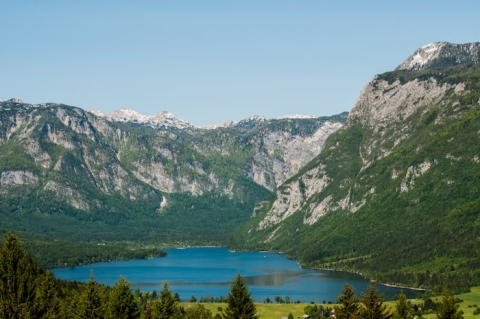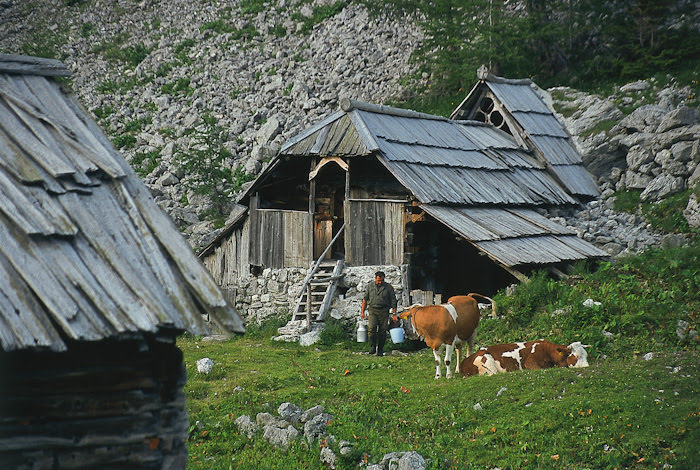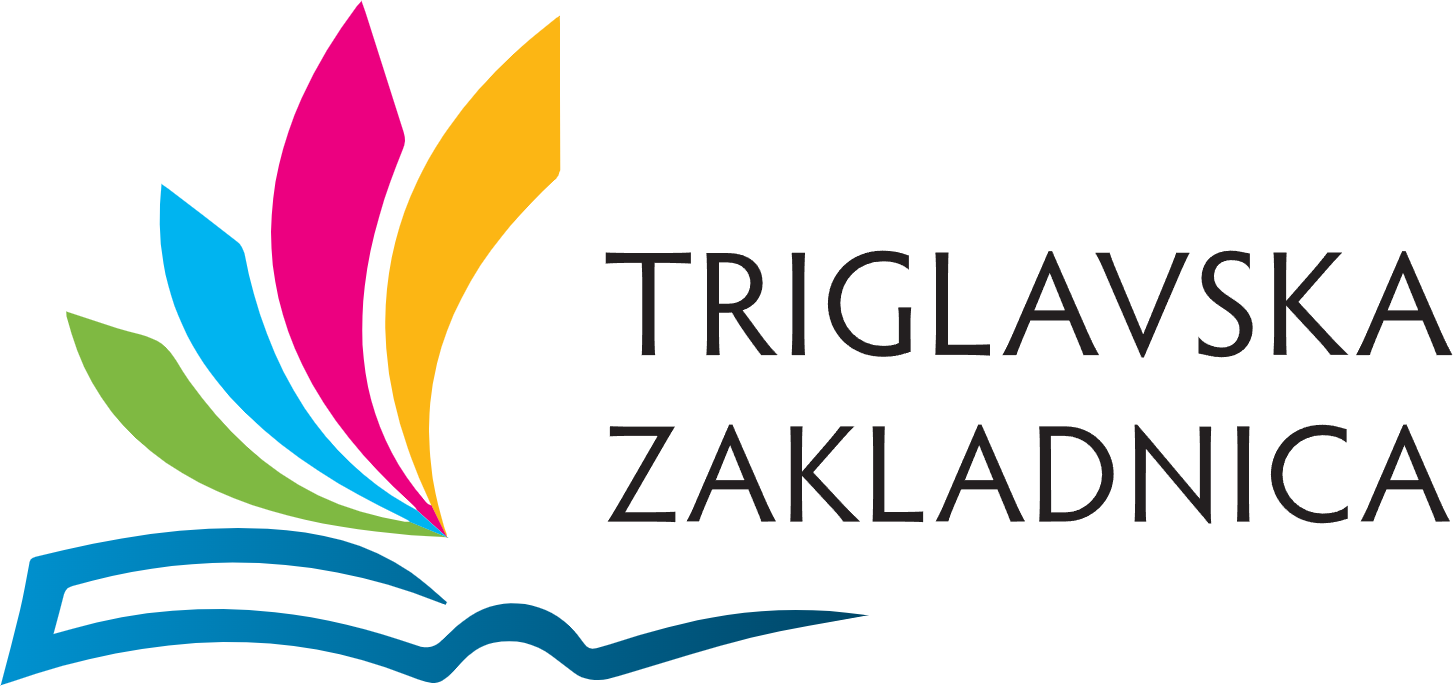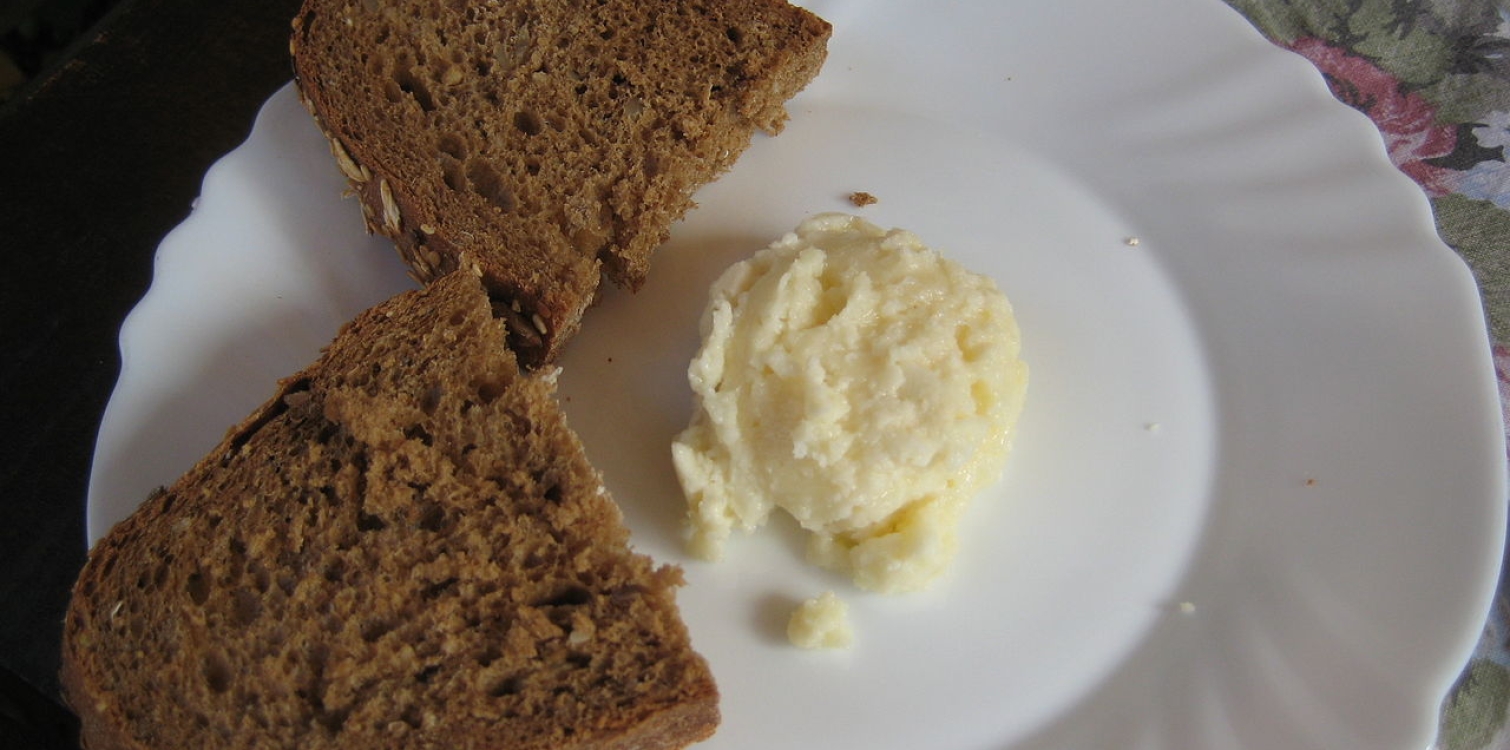
In the Alps, not only in Slovenia but also in Italy, Switzerland, Austria, and France, people have learned to make various types of cheese from the milk of their cows, sheep, and goats over the centuries. Cheese is often referred to as the "white gold of the Alps," as people traded it and used the profits to help them survive.
In the Julian Alps, there are several types of cheese, but a particularly unique one is Bohinj cheese-mohant. The knowledge of its production is inscribed in the Register of Intangible Cultural Heritage of Slovenia.
Mohant is a soft cheese with a distinctive aroma. Many say it doesn’t smell pleasant or even that it stinks. Nevertheless, it is a unique specialty that some gourments love despite its odor. The reason for its uniqueness lies in the production method, which is among the oldest cheese-making techniques. There are very few similar cheeses in the world.
Mohant is a soft cheese with a distinctive aroma. Many say it doesn’t smell pleasant or even that it stinks. Nevertheless, it is a unique specialty that some gourments love despite its odor. The reason for its uniqueness lies in the production method, which is among the oldest cheese-making techniques. There are very few similar cheeses in the world.
The tradition of making Mohant is passed down from generation to generation among Bohinj cheese makers. It is made from raw cow's milk. While other types of cheese often include so-called "cheese cultures," Mohant is made without any additives. All the microorganisms that contribute to its flavor come naturally from the milk itself.
It ripens in anaerobic conditions, meaning that Mohant is airtight during the aging process, preventing air from reaching it. This results in the release of ammonia gas, which has a strong odor.
Lovers of Mohant spread it on bread, and it also works well as an ingredient in other dishes. In Bohinj, they even make ice cream from it!

DO YOU KNOW?
- In addition to its distinctive aroma, mohant has a slightly spicy flavor that depends on the cows' feed and the quality of the milk. The best Mohant is made from the milk of the Cika breed- a native breed of cattle found in the Julian Alps.

